Understanding the Difference between Stress and Anxiety
The burden of living from work, problems with your partner, financial problems, even family problems often expose you to unpleasant situations. Automatically, you will react, one of them through stress.
Stress that occurs continuously allows you to face situations that look scary and makes you feel easily tired, anxious, and miserable. An unresolved condition of severe stress can trigger anxiety disorders. Therefore, it is important for you to know the difference between stress and anxiety.

Get acquainted with stress
In stressful situations, your body will naturally respond to self defense against the condition. This form of response is known as stress. Although stress conditions are not preferred, but actually stress helps us to live and stay safe.
So when you are faced with situations that trigger stress, for example there is a pressure caused by the fact that you will have a presentation of work projects next week. Your body will automatically pick up on these signals as a threat. Then the brain will produce a number of hormones and chemical compounds such as adrenaline, cortisol, and norepinephrine to protect you. This hormone noepinephrine triggers a “fight or flight” reaction in the body.

Stress does not always have a negative effect because under certain conditions, it will give positive encouragement to you so that you can respond effectively to sources of pressure. However, stress often gives negative energy because the brain is flooded by the three hormones produced.
This causes you to feel anxiety, confusion, and anxiety. Moreover, blood flow will go to other body parts to respond to the stress physically. As a result, brain function decreases because more blood flows to other parts of the body. Therefore, when you experience stress you will have difficulty thinking clearly.
One natural remedy for dealing with stress is sleep. The reason is during sleep your body will slow down its activity so that the body has time to make improvements naturally.
What is anxiety or anxiety disorders?

Everyone has experienced stress and anxiety at least once in a lifetime. The difference, stress is the body’s response to threats in random situations that can harm you. Anxiety is your reaction to stress.
Familiar with the sensations of heartburn, dizziness, heart palpitations, rushed breath, and cold sweat when you are overwhelmed with worries before speaking in public, for example, or waiting to be called for a job interview? These are some signs that you are stressed and / or anxious. Usually this series of symptoms will subside as soon as you feel relieved or complete your task. This means that the level of psychological pressure you are receiving is still “healthy” so that you are still able to handle the situation appropriately.
Anxiety becomes a chronic psychological disorder when you are constantly being plagued by unreasonable fears or fears of all sorts of things that you consider to be a major threat, even though they do not pose a real danger. Anxiety is a psychiatric disorder that is recognized by the medical world. Anxiety disorders are conditions that can be diagnosed by doctors based on a collection of symptoms that you feel on an ongoing basis.
Living with anxiety disorders makes you continue to experience stress even after that long-awaiting event. And even when you are not brought into contact with any stressor, that anxiety will always remain unconscious – haunting you with restless anxiety throughout the day. Anxiety disorders you can experience every day with the appearance of symptoms that are very clear, such as social phobia, or come suddenly for no reason such as panic attacks or anxiety attacks. This means, anxiety disorders do not have to surface in response to certain experiences / situations.
Then, what is the difference between stress and anxiety?
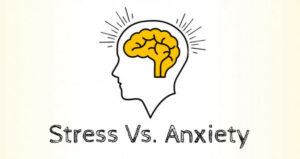
Anxiety is your reaction to stress. Some of the characteristics of anxiety are the onset of heartburn sensations, the heart beating faster than usual, dizziness, cold sweat, and rushed breathing.
Usually these things will disappear by themselves after you successfully complete the work or situation that is a source of stress. When that anxiety gradually goes away by itself it means that the psychological level that you are experiencing is still “safe” enough so that the body can respond and handle the situation.
When under stress and anxiety, you know exactly what you are facing, namely the challenges of life that you encounter everyday (even if it happens randomly) – work deadlines, financial bills, household affairs, etc. But sometimes, what makes you stress can also come from within, triggered by an overactive imagination or not thinking clearly. Stress and anxiety will disappear when you make priorities and handle them one at a time. In the end, you can find a way out of every problem and get back up through the day.
Anxiety in the level of danger is if you are constantly hit by unreasonable fears and consider various things as a big threat. Though these things might not trigger a threat as big as you have in mind. In such conditions, you should consult a doctor to determine further steps to overcome anxiety.
7 simple ways to reduce stress and anxiety
There are many ways to treat anxiety problems. The best way is to consult with health professionals to find the right treatment. However, if you haven’t gotten access to a therapist or other reason, there are seven things you can do to deal with stress and anxiety:
1. Make a thankful list
Neuropsychologist and faculty members at Columbia University, New York, Sanam Hafeez, PsyD, suggest making a list of things you are grateful for in life. This method can help lift moods and get rid of negative thoughts related to anxiety.
Meditating is another way that therapists suggest to overcome anxiety problems. Renewal Therapy founder, Natassja Marshall, PhD, LCP said, we can meditate and use it as an initial step to overcome anxiety. Marshall recommends at least spending about 20 minutes meditating every day to reduce symptoms of anxiety and improve emotions.
When you would like to do meditation, choose a nice and quiet place for you to sit down and use a comfortable yoga mat so you can stay focus on your meditaion and you can also listen to a soothing music while meditating.
3. Perform deep breathing techniques
If you don’t like meditation too much and don’t have access to see a therapist, a deep breathing exercise might be a way to reduce the symptoms of anxiety. This method is very helpful for people who practice it when they are not worried.
Practicing deep breathing techniques every day will get your body accustomed to breathing the right way. That way, when you are in a stressful situation, you will instinctively use this breathing technique to deal with stress.
4. Stretching muscles

Muscle relaxation can also be a way to eliminate anxiety. Start from your foot, slowly squeeze the muscles in that part, then slowly release. Then, squeeze the large muscles on the calf for five seconds, then release. Next, squeeze the thigh muscles for five seconds, then release. Do it until the muscles in the entire body get a part and get a relaxing effect, such as quad, oblique, forearm, until the triceps.
5. Practicing the A-B-C-D method
LaQuista Erinna suggests the A-B-C-D method, a mental “check-in” method that can be done alone to overcome the problem of anxiety.
A: Aware of or realize the anxiety that you feel.
B: Be with your feelings – try to feel the anxiety and be present in the present moment.
C: Check– check the messages to be conveyed through the symptoms of anxiety. Ask these questions to yourself: “What makes you worried? When does anxiety arise?”
D: Decide – decide what to do. Is it enough to recognize his feelings or have to move to find a solution?
6. Scheduling time for worries
This feels like inviting more severe anxiety. However, according to the Founder of Baltimore Therapy Group, Heather Z. Lyons, PhD, this method can be very helpful. Instead of letting inward thoughts interrupt our other days and make sleep disturbed, we can set specific times.
Choose a specific duration to let the worry be present, only at that time. If worries arise outside this time, Heather recommends writing those thoughts down, and thinking about them at the time the worry has been allocated.
“Time worry works because there is a psychological mechanism called stimulus control. When we allocate a certain amount of time to worry.” “We stop our brain being stimulated with worry in response to triggers, such as passing a certain person or specific place,” he said.
According to LaQuista Erinna, during that time write down things that make you worry in a journal. When returning to worry time, look back at the journal. It’s important to see and acknowledge our concern for something.
7. Writing a journal

Sanam Hafeez said, writing a journal can help record the things we feel from day to day. This can help us to evaluate what feelings and conditions trigger anxiety so that we can find ways to overcome them.
Keep in mind, these methods are only the first step to overcoming anxiety and do not intend to replace mental health service standards.
Conclusion
Based on the explanation of those two psychological problems, there are indeed similar characteristics. But it’s clear if you experience stress and anxiety, you still know what problems are faced and how to overcome them. Although the source of stress and anxiety may be random. Then, making a priority scale for solving existing problems can be one way out of these two problems.
Meanwhile, when you are depressed, you are generally powerless to analyze what causes it so that the reactions that appear instead become a problem. Usually depression occurs in a longer duration of time than stress. Disorders such as difficulty sleeping, lazy to meet people, so difficult to eat and digestive disorders can arise due to these conditions.
So, if you start picking up stress signals, try to deal with them directly so they don’t drag on for too long and trigger depression!
———————————————————————————————————————————
We Stress Free does not provide medical advice, diagnosis, or treatment. However, if you need someone to talk to and want to make friends, please feel free to reach me at ferra@westressfree.com. If you would like to REDUCE your STRESS and are interested to do an ONLINE THERAPY, you can do so here.

———————————————————————————————————-—————————-
The information contained in this article is for educational and informational purposes only and is not intended as health or medical advice. Always consult a physician or other qualified health provider regarding any questions you may have about a medical condition or health objectives.

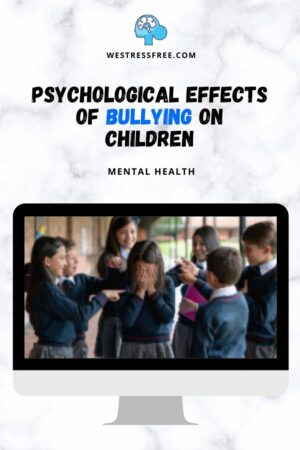
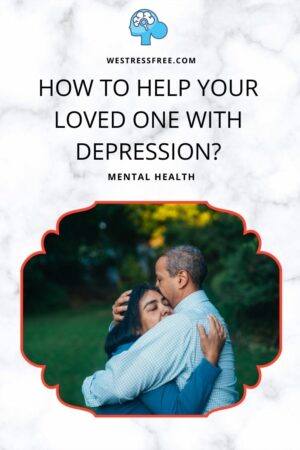
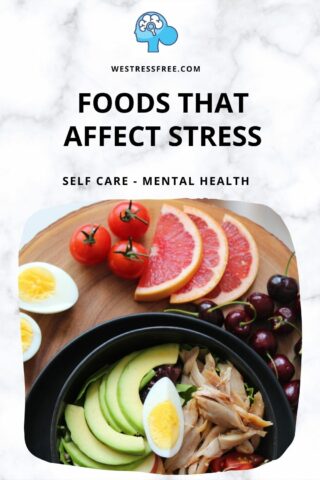
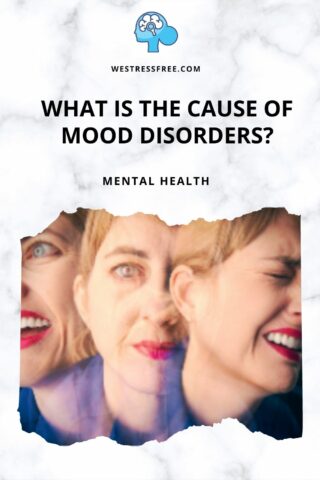
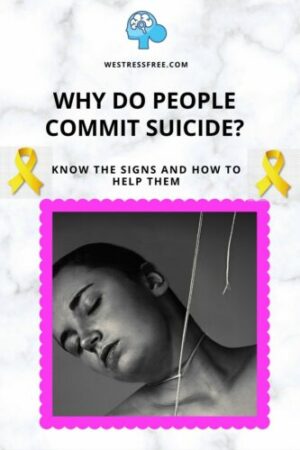
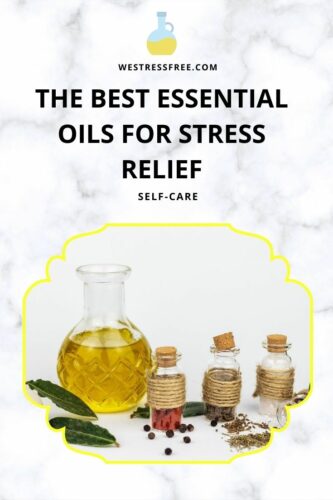
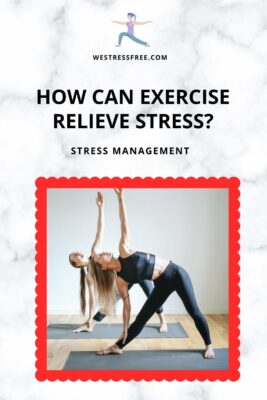
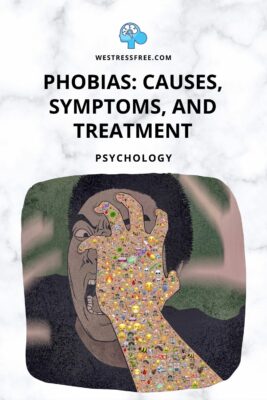

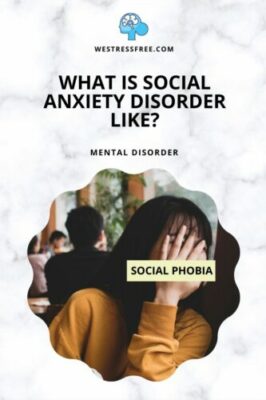
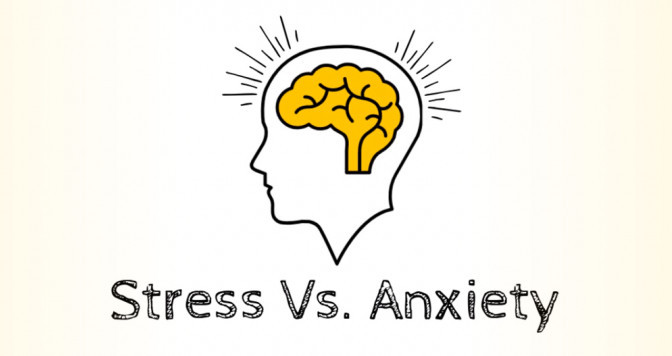

This is a good one. I must first commend the time and energy that you have put into making this website with nice templates and finding time to write an article on understanding the difference between stress and anxiety. I have gotten a full understanding of anxiety Thanks to your awesome article.
Hello,
Thank you for taking time to visit my site, read my post and leave a comment. 😃 👍
I am happy to know that you liked the post. I appreciate your kind words and feedback about my website.
Glad you get a good understanding of anxiety and stress from this post. If there’s anything I can help you with please let me know.
All the best,
Ferra
Hi,it is a great and nice feeling to know that someone will create a great website like this and also create a write up on an article like this. Some people still cannot differentiate between stress and anxiety. I had a friend who was always anxious when he wants to speak to the crowd. But he always denied
Hello,
Thank you for taking time to visit my site, read my post and leave a comment. 😃 👍
I am happy to know that you liked the post. I appreciate your kind words and feedback about my website.
I hope your friend can speak to professionals like psychiatrist or doctors. Maybe it’s better rather than him going out there and try to speak to the crowd. If there’s anything I can help you with please let me know.
All the best,
Ferra
This is a very useful article in which you described the difference between stress and anxiety. I did not know that there is so much talk about this topic and it seems that it became very interesting while reading this article.
I found it very attractive the part where we can prevent stress and anxiety. I didn’t know that relaxing the muscles by stretching can eliminate stress. Also, writing a journal is a good way to get rid of this psychological problem and focus on such activities. Thanks a lot for these explanations and I hope to post more.
Hello,
Thank you for taking time to visit my site, read my post and leave a comment. 😃 👍
I am happy to know that you liked the post. I appreciate your kind words and feedback about my post.
Stress builds up without us realizing it and it can create physical and mental stiffness. So, stretching is one of the things we can do to aid in reducing our stress. If there’s anything I can help you with please let me know.
All the best,
Ferra
Hello Ferra,
Really thanks for sharing these deeply analyzed facts on stress, anxiety and depression. Not just the working mass but also the young people could make much use of the simple and less time consuming techniques mentioned like deep breathing, ABCD technique.
And, I’m worried if there is any possible ways to make it out as soon as possible if a person has gone long into the state of depression? Cause that’s the scarier part overall and where our body truly begins failing us. It would be greatly helpful to get to know more about these disorders and techniques from someone as experienced as you.
Thanks for taking your time to share these useful facts and hoping to hear more from you!
-Nithin
Hello Nithin,
Thank you for taking time to visit my site, read my post and leave a comment. I really appreciate it! 😃 👍
Depression is something that we can’t handle by ourselves. We need to seek help from professionals like doctors or psychiatrist. But I know sometimes patients who seek treatment for anxiety or depression will only be given pills or antidepressant. I think it is a short fix that might be a problem later on. I know for a fact someone who is near and dear to me, he suffers from PTSD and his doctor gave him pills. He told me those pills didn’t work and he often gets bad dreams when he sleeps at night. So, what else should we do? Some people will suggest us to go to a hospital where they’ll have an expert sit with you and some other patients. You come to the meeting and share your feelings there. They’ll give you books to read then discuss it with others. You’ll be given positive activities such as writing, etc. That’s one way. Bottom line is, to take care of depression, we need to seek help from professionals.
If there’s anything else I can help you with please let me know.
All the best,
Ferra
Thank you so much for sharing with us such a beautiful article about Understanding the Difference Between Stress and Anxiety. I get much information in this post.
I think stress is our body’s reaction to a trigger and is normally a short-term experience. Stress can be wonderful or negative. Stress is a reaction to a chance in any given situation. Anxiety, on the opposite hand, is a sustained mental health disorder that can be precipitated by strain. I also sometimes suffer from stress and anxiety. I will follow ways to reduce the stress and anxiety of your article. I am going to bookmark it. I must share your article with people close to me. I think this article will benefit everyone. Thanks
Hello Sabrina,
Thank you for taking time to visit my site, read my post and leave a comment. 😃 👍
I am happy to know that you liked the post. I appreciate your kind words and feedback about my website.
Glad I can help with getting more people to understand the difference between anxiety and stress from this post. If there’s anything I can help you with please let me know.
All the best,
Ferra
This is so revealing, i never knew that heart burn sensations are one of the characteristics of anxiety. Its so intricate how one situation leads to another and continues the domino effect if not checked. Stress which leads to anxiety can actually be converted into a fuel for success if monitored and identified diligently. The human emotions are subject to thoughts and feelings and if we can form the habit of observing our thoughts and feelings, then we can ultimately choose carefully what we think and how we feel. These two factors solely depends on individuals as no person can control the mind or thoughts of another who has decided wilfully to focus attention on desired thoughts alone. In this i think lies the root knowledge that folks may leverage to stay in control of situations and win always.
From my experience meditation and deep breathing are almost indispensable in dealing with stress. If we form the habit to meditate daily and also to arrest our thoughts any moment we catch ourselves thinking of what we don’t want to experience, we will definitely prevail. The human mind is so flexible that we have the power to instantly change our thoughts and feelings to what we desire and this becomes a habit with practice and repetition. Another idea that has helped me along my journey is to take a short break in-between at certain intervals of work and take a walk in nature, maybe a garden or mountain under the sun in open air, if possible sometimes taking off the shoes to walk bare foot on sand. It works like magic in restoration and peace. Life is Beautiful! we all can live a stress free life! Cheers!
Hello,
Thank you for taking time to visit my site, read my post and leave a comment. 😃 👍
Stress builds up without us realizing it and it can create physical and mental stiffness. Heart burn is definitely not fun. Because stress can also deplete the production of substances called prostaglandins, which normally protect the stomach from the effects of acid. This could increase your perception of discomfort. Stress, coupled with exhaustion, may present even more body changes that lead to increased acid reflux.
I agree with you, controlling our mind and the way we respond or react to things can help us to manage our own well being especially against stress.
Yes, life is beautiful. We have to celebrate the gifts we’ve been given such as being able to wake up and breath every day.
Once again thank you for your kind and thoughtful comment. I really appreciate it!
Cheers,
Ferra